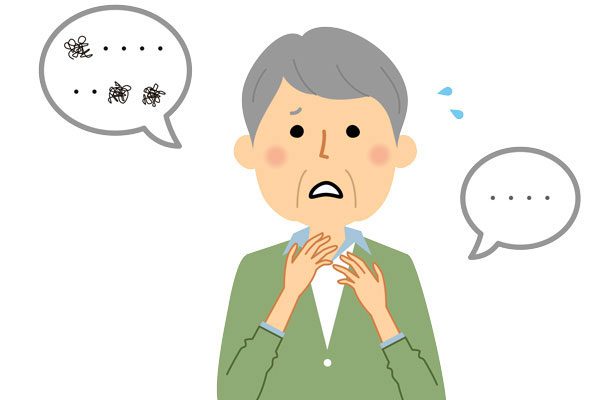At the beginning of 2022, actor Bruce Willis, 67, announced his retirement, bidding farewell to his film and television career after being diagnosed with aphasia. This condition severely impacts his cognitive abilities. So, what is aphasia, and how does it impair the communication skills of those affected by this disorder?
Aphasia is a communication disorder that affects a person’s ability to speak or understand spoken language. It impacts how they comprehend written words and their reading and writing abilities. It is important to note that aphasia can manifest in various forms. Some individuals with aphasia may only struggle with understanding language, which is the result of damage to the temporal lobe, the area responsible for processing sound and language in the brain. Others may only have difficulty with speaking, indicating damage in the frontal lobe. The loss of both speaking and understanding language indicates the worst-case scenario: damage in both the major temporal lobe and the frontal lobe.
Most people with aphasia experience difficulty trying to name things they know, leading to challenges in using words in sentences. It also affects their reading and writing abilities.
 Brain tumors can also lead to aphasia.
Brain tumors can also lead to aphasia.
In most cases, aphasia is the result of a stroke or brain hemorrhage. It can also be caused by brain injury due to trauma, such as a car accident. Brain tumors can also lead to aphasia.
There is also a distinct form of this condition known as “primary progressive aphasia.” This often starts with mild symptoms but worsens over time. The medical community has yet to reach a conclusion about the causes of primary progressive aphasia. However, it affects brain regions similar to those in aphasia caused by stroke or hemorrhage, but the onset of symptoms follows a different trajectory.
Aphasia is a relatively common condition today. Approximately one-third of stroke survivors experience this disorder. In the United States alone, around 2 million people are living with aphasia, with an additional 225,000 Americans diagnosed each year.
There is no gender difference among those with aphasia. However, individuals at higher risk of stroke are more likely to develop it, particularly those with cardiovascular issues and diabetes.
Aphasia can occur at any age; however, it often affects individuals over 65 simply because they are at a higher risk for strokes. Nevertheless, younger individuals and even infants can also develop this condition.
When someone unfortunately experiences aphasia following a stroke or brain hemorrhage, the diagnosis will be made by a neurologist. In these cases, patients will exhibit a sudden onset of the disorder, with their ability to speak or communicate significantly reduced.

Aphasia can occur at any age.
For primary progressive aphasia, diagnosis can be more challenging. Initially, the condition may be very mild, but patients will gradually forget names of people or objects, and then slowly find it difficult to understand what others are saying. These changes will help trigger more accurate diagnoses.
Individuals with aphasia due to stroke or hemorrhage will recover over time. The speed and extent of recovery depend on the level of brain damage and the treatment they receive. On the other hand, primary progressive aphasia is degenerative; patients will deteriorate over time, although the rate of decline may slow down.
The good news is that aphasia can be treated. In its non-progressive form, consistent therapy can help restore speaking and understanding abilities. Patients will be treated through one-on-one repetition exercises, helping them gradually regain their speech. However, patience is necessary as the journey can be long and depends on the extent of brain damage.
In the case of primary progressive aphasia, symptoms of speaking and language ability will worsen over time. However, rehabilitation therapies can assist stroke survivors in regaining their ability to speak and understand language, and may also slow the symptoms in cases of primary progressive aphasia.
Currently, researchers are conducting clinical trials on several types of treatment drugs, but these are in the early stages, and results are not yet promising. At present, speech rehabilitation therapy is the most common treatment method.





















































